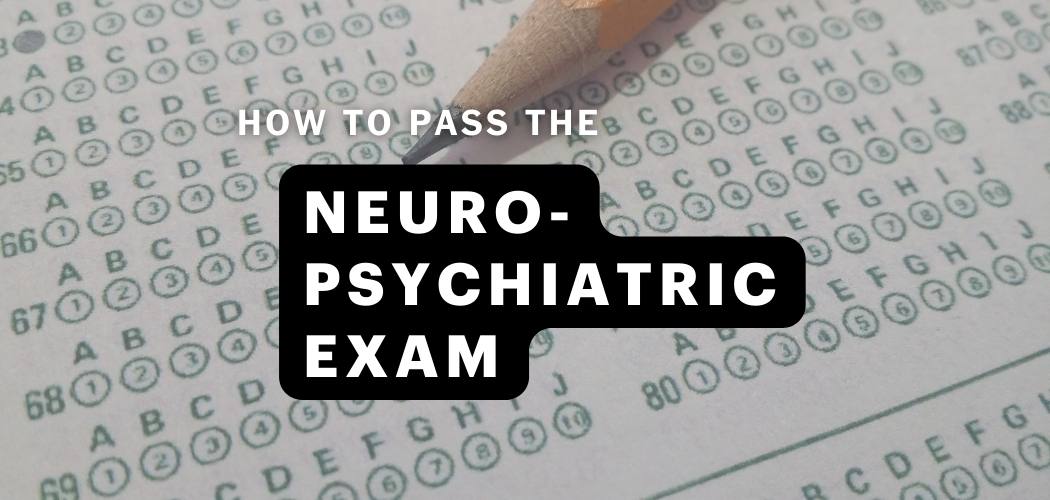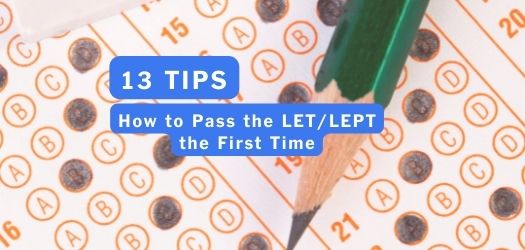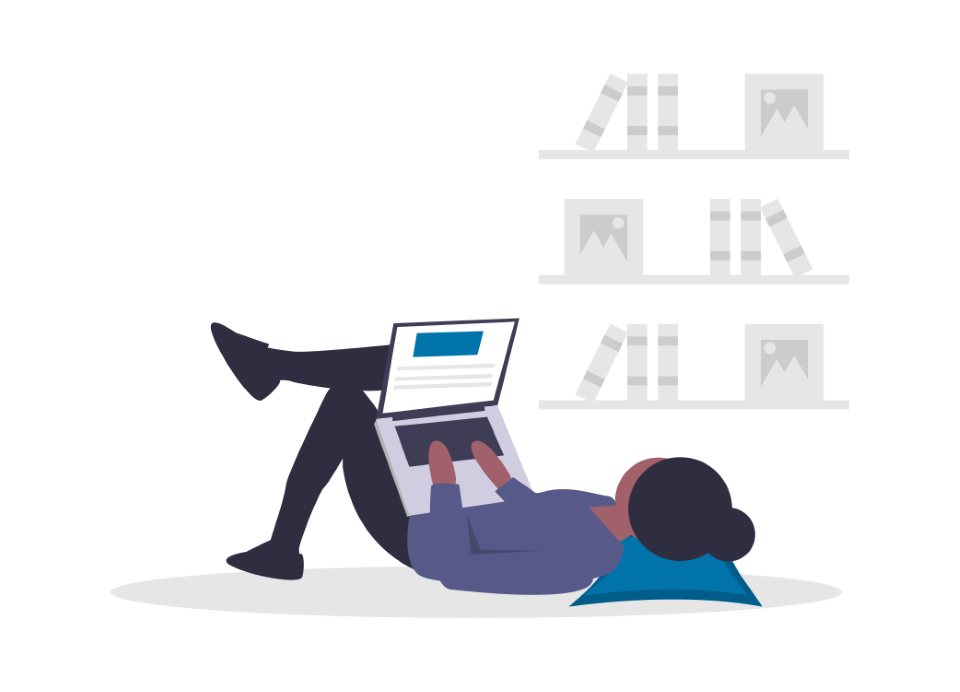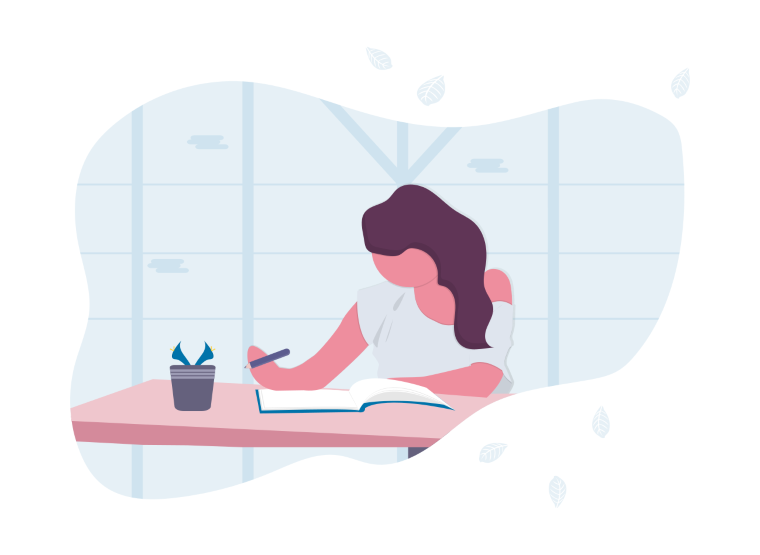In this article, we are going to teach you simple strategies you can use to pass ANY exam you might have coming up. These are based on the ideas from cognitive science. These ideas are easy to miss, but extremely important if you want to review or study more effectively.
1. Spread out your study time
Key idea: Spacing effect.
Advice: Space out your study schedule, with only a slight increase right before the exam day. Try to practice each piece of info five times from the time you first learned it, until your testing day.
The first question to answer is when you should study and by how much. If you spend a lot of hours preparing, you’ll do a lot better than you spend just ten hours. In other words, you’ll do better the more you study. That’s pretty obvious.
What’s less obvious is how you should distribute your studying time, which is limited.
The literature on the spacing effect clearly shows that studying time is more efficient if you spread it out over multiple sessions than cramming it together in one burst. More exposure to information, separated in time, will result in better retention than compressed in one session.
This means, your studying schedule should be as evenly spread out as possible throughout your exam day. Of course, it’s perfectly okay to study a little bit more weeks before the exam.
How much to study every session? That’s the next puzzle.
It is recommended that you aim for covering each piece of information at least five times. This is via questions or problems and should be evenly spaced from the time you first bump into the topic until your testing date.
This approach is efficient for retaining information with the least amount of effort.
2. Testing beats review
Key idea: The testing effect.
Advice: After learning the information the first time, succeeding studying time should be in the form of retrieval practice. This means trying to reproduce the information — solve a problem or explain the key ideas — without looking at the source.
This result is just one of many from robust literature concerning the testing effect.
Once you’ve organized your studying schedule, it’s now time to look at what you are doing when you study.
This is an area where there’s a very big difference between what most people think is effective and what works best.
Jeffrey Karpicke and Jannele Blunt, both psychologists, did an experiment[1]. They grouped their students into four: single review, repeated review, free recall, and creating a concept map (a.k.a mind map). Free recall of the information means you try to remember as much as you can without looking.
Students who did repeated reviews and concept mapping thought they’d do best. While students doing the free recall thought they’d do worst.
At the end of the study, the exact opposite happened. The students doing free recall did much better than the other groups.
The testing effect says that testing oneself works better than re-reading notes or creating diagrams while referencing your textbook. This is because the brain must retrieve important concepts from memory.
3. Prioritize high-quality problem sets
Key idea: Transfer-appropriate processing.
Advice: Mock exams are best, followed by textbook problems, and then writing prompts from big concepts.
There’s a strict ranking of what kinds of study materials you should get to prepare for your eventual exam:
- Mock tests and exams are the most valuable. Intended to be identical in style and form to the test you will take.
- Problems given in textbook questions or quizzes, or even homework assignments.
- Self-generated questions or writing prompts based on the material you’re using.
The reason for this ranking of practice is known as transfer-appropriate processing.
In layman’s terms, your practice tests should resemble the real exam because your practice efforts will transfer into real results.
If you don’t have access to high-quality problem sets, a good solution is to do a writing prompt. Pick a concept, theme, or big idea, and then try to explain it accurately and concisely without opening your book. Re-read it to check if you got it right.
4. Imagine teaching the concepts
Key idea: The illusion of explanatory depth.
Advice: Identify the core concepts and make sure you can explain them without looking at the material. Don’t hesitate to repeat it until you get it because you’ll know something best when you can teach it.
Most major exams are conceptual. Passing or failing depends on whether you understand the important ideas. Memorization matters, but it’s just a tool for understanding, rather than an end in itself.
This means that deeply understanding the core concepts behind any exam you study should be a top priority.
Practice problems (see transfer-appropriate processing) already help with this because you need to understand a concept before you can solve a problem.
However, shallow understandings pretending as deep ones are very common. Psychologists call this the illusion of explanatory depth[2].
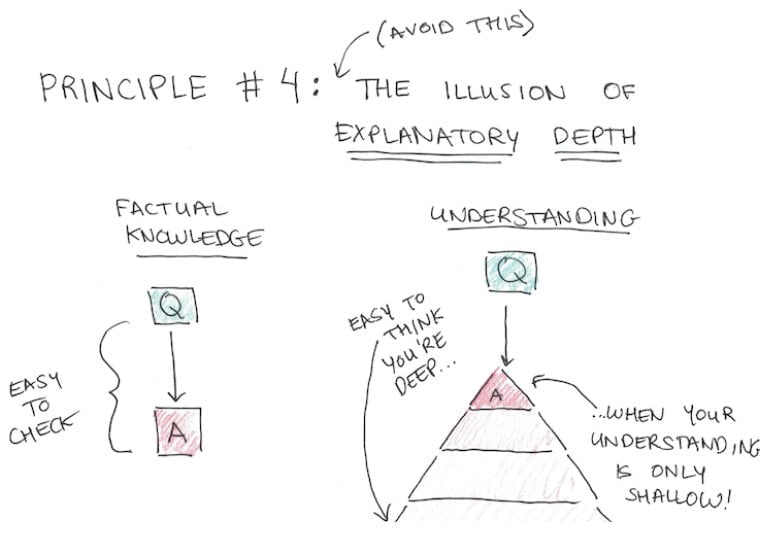
The reason is that while it’s easy to self-check factual knowledge (you either know it or you don’t), understanding proceeds in degrees, so it’s easy to convince yourself you know something deeply you don’t.
Feynman Technique is a tool for deepening your understanding of core concepts covered in the ideas.
5. Reduce exam anxiety
Key idea: Exam simulation reduces anxiety.
Advice: Simulate your exam by doing mock exams under the same time constraints and conditions as the actual exam.
Big exams come with big anxiety.
Anxiety and stress make it harder to concentrate and remember things, even if you could.
The solution is to make at least some of your studying sessions a full-blown simulation of the exam. Take a few mock exams and do a full simulation of the test — same seating posture, materials, and most importantly, time constraints.
Three benefits of doing this full-blown exam simulation:
- You increase your temporary anxiety while studying.
- You’ll be less anxious when the eventual test comes.
- You’ll know what your performance is likely to be on the test.
Final thoughts
Use these five researched-based ideas to prepare for your next major exam. Here at TestPinoy.com, we have free full-blown exam materials you can use. Take the exam via Google Forms, or download the PDF file for your later use.
References
- Karpicke, J. D., & Blunt, J. R. (2011). Retrieval practice produces more learning than elaborative studying with concept mapping. Journal of Experimental Psychology: Applied, 17(4), 382–395. https://doi.org/10.1037/a0023956 ⬏
- Jacoby, L. L., & Dallas, M. (1981). On the relationship between autobiographical memory and perceptual learning. Journal of Experimental Psychology: General, 110(3), 306–340. https://doi.org/10.1037/0096-3445.110.3.306 ⬏
